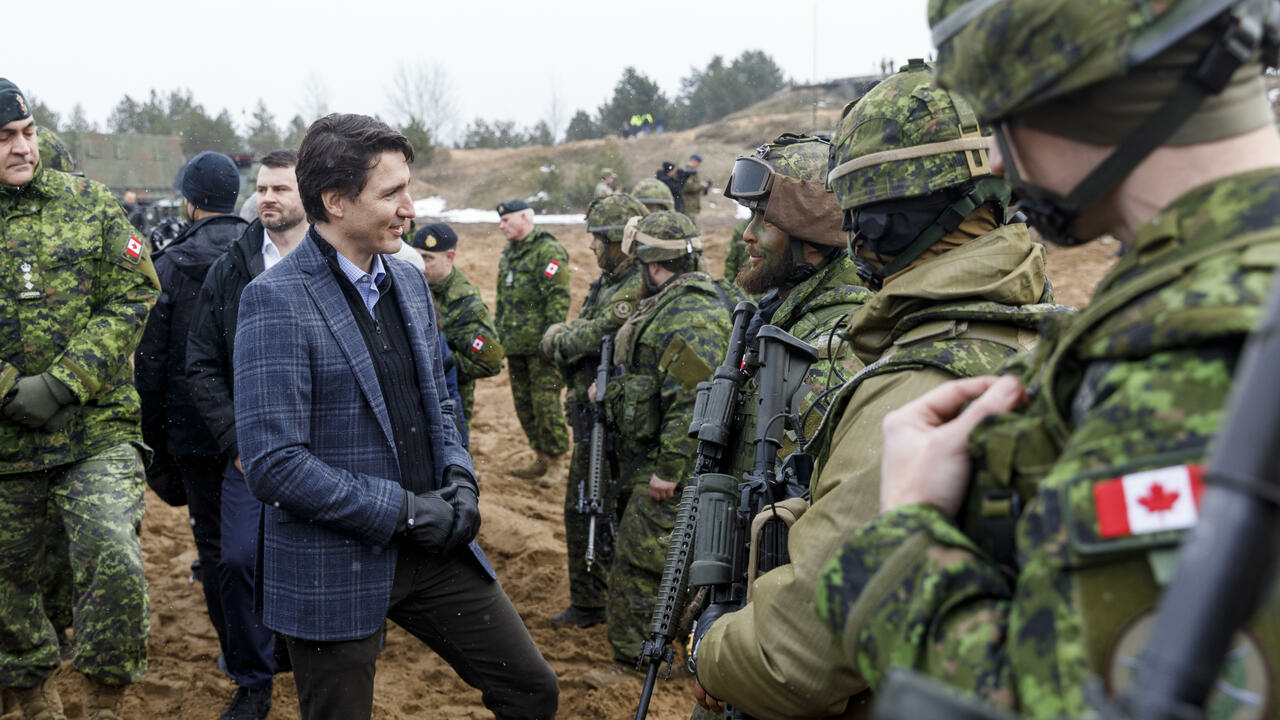
Canada’s Prime minister Justin Trudeau talks with soldiers during a visit of the Adazi military base, north east of Riga, Latvia, in March 2022.
Ottawa (AFP) – The number of white supremacists and other violent extremists within Canada’s military is growing at an “alarming rate” and commanders are not doing enough to root it out, a report said Monday.
Advertising Read more
The report by a four-member government advisory panel also found widespread anti-Indigenous and Black racism, Islamophobia and anti-Semitism, as well as gender bias and prejudice against gays and lesbians within military ranks.
A failure to address these issues, it concluded, “negatively impacts operational capabilities, undermines the well-being of (military) members, and puts the security of Canada in peril.”
“The reality is that systemic racism exists in our institution and we need to root it out and eliminate it,” Defense Minister Anita Anand told a news conference.
She noted that a total of Can$326.5 million (US$256 million) had been earmarked in the last two federal budgets “for culture change in the military.”
The report found that “in addition to sexual misconduct and domestic violence, hate crimes, extremist behaviours and affiliations to white supremacy groups are growing at an alarming rate.”
It noted that members of extremist groups are becoming better at hiding their activities and affiliations, for example using encryption and Darknet, while the military’s efforts to detect extremist pockets or individuals are “still very much siloed and inefficient.”
And despite a zero tolerance for hateful behaviour, when it is found out, the consequences for such conduct or affiliation with hate groups “is not standardized,” it said.
Advisory panel member Ed Fitch said military leaders “still don’t know enough about these groups, who they are, where they are” and that a concerted effort is needed “to completely clean out this nasty area.”
Over the past 20 years, some 258 recommendations stemming from dozens of inquiries were made to address diversity, inclusion, respect and professional conduct in the military.
But when the panel tried to identify progress on those recommendations, it found that many of them were “poorly implemented, shelved or even discarded,” noted Sandra Perron, another panel member.
The advisory panel made 13 of its own recommendations.
Chief of the Defense Staff, General Wayne Eyre, said the top challenge is that “once the spotlight goes on (these groups), they change their names, they change their symbology.”
“As hate groups become mainstream in our society we have to be very vigilant and continue to educate ourselves as to what these signs and symbols are,” he said.
© 2022 AFP







